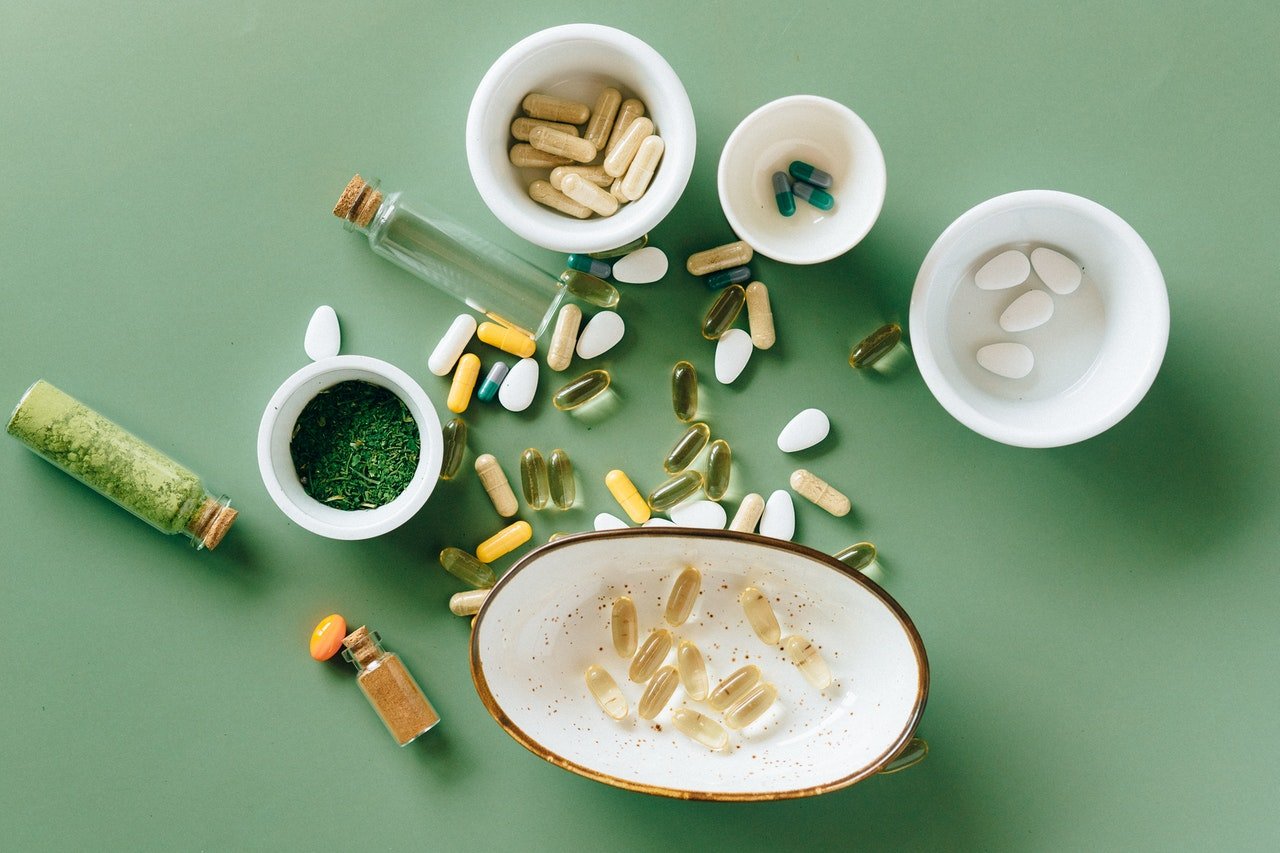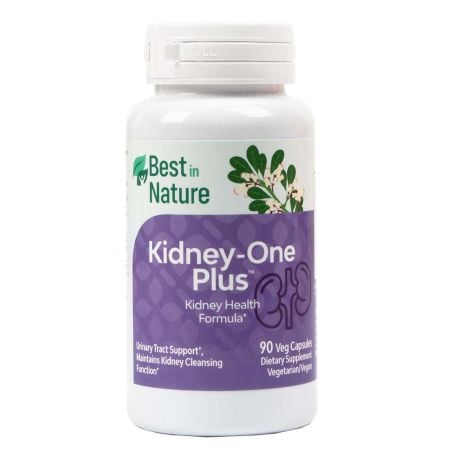
Reviewed and Updated: August 7th, 2024
5 min read
Like many other parts of the body, we don’t give our kidneys much thought until something happens. As of 2019, 31 million adults suffer from chronic kidney disease (CKD) in America (kidney.org). The worst part is that the majority didn’t know they had kidney issues.
The good news is that through various exercises, healthy eating, and essential supplements, your kidneys can function beautifully.

We’ve placed people’s health and the planet at the center of every product for the past 30 years. Learn more about who we are.
Kidney Health Diet
A well-balanced diet that focuses on whole, minimally-processed foods is the best way to prevent kidney complications in the future. Ideally, your diet should consist of low to moderate amounts of protein.
You may need to control other parts of your diet if you already have kidney disease, like:
- Sodium
- Potassium
- Phosphorus
- Calcium
The great part about changing your diet is that you will improve your health in other ways. A healthy, balanced diet prevents infections, avoids muscle-mass loss, and maintains healthful amounts of weight and energy, to name a few.
A balanced diet mixed with the right supplements may help to prevent kidney disease and slow the process for those already diagnosed.
Let’s review seven important supplements to improve your kidney health.

Your diet should consist of low to moderate amounts of protein.
RELATED: 8 Ways To Improve Heart Health
Supplements for Kidney Health
1. CoQ10
Our kidneys experience oxidative stress from filtering all the toxins in our blood. The number of free radicals they are exposed to can easily lead to oxidative stress. However, CoQ10 can help.
CoQ10 (Coenzyme Q10) is an antioxidant responsible for growth and maintenance that our bodies produce naturally. This supplement strengthens and encourages natural antioxidants and reduces the number of oxygen-free radicals in the kidneys.
A study in June of 2019 showed encouraging results when CoQ10 was combined with other medicines to treat diabetic kidney disease. Additionally, CoQ10 administration showed reduction of proteinuria (excess protein in the urine and sign of kidney damage) by 88% at 12 months and preservation of kidney function by 62%.
2. ALA (Alpha-lipoic acid)
Lipoic acid is another antioxidant that helps with kidney health. Lipoic acid is created inside the mitochondria, a tiny organelle responsible for energy production by breaking down carbs in the body. As a result, it may help with high blood levels of fats and carbs although more research is needed.
Georgetown University Medical Center nephrologists studied lipoic acid and found that it helped to lower blood sugar and as a result improved overall renal function. ALA can also reduce inflammation in the kidneys and in the body overall, thus decreasing damage to the kidneys also by lowering creatinine levels, serum blood urea nitrogen, and inflammatory cytokines.
3. Andrographis
Andrographis is a plant native to South Asian countries and is commonly used in Eastern medicine in the treatment of the common cold, infections, fevers, and even osteoarthritis.
Andrographis may also protect against some of the kidney damage that results from drinking alcohol. Andrographolide and arabinogalactan proteins- two compounds found in Andrographis were found to protect against alcohol toxicity in animal studies although more evidence is needed to know whether this holds true in humans as well.
4. Moringa
Moringa is a green superfood perfect for protecting your kidneys packed with high levels of antioxidants that help fight off toxicity in the kidneys.
Moringa comes from the moringa tree, native to Central and South America, Asia, Africa, and Australia. Eastern medicine has used moringa for thousands of years, and for a good reason.
Recently, scientists discovered moringa’s ability to protect SOD and CAT levels in the kidneys. Studies have shown that people who consume moringa may be less prone to kidney stones and have improved blood glucose levels while also reducing tissue damage from the kidneys.

[RELATED: The Surprising Benefits of Maca]
5. NAC
You might be noticing a pattern in that many of these are high in antioxidants. Well, this one is no exception. NAC (n-acetyl cysteine) is another antioxidant that helps protect the kidney from injury caused by ischemia, and toxins.
Typically, doctors use NAC to treat acetaminophen overdose, an event that typically results in kidney damage. For this reason, some might try taking NAC to get its kidney-protective benefits during normal times.
Scientists are still researching NAC for use in patients with kidney disease. Although the results are mixed, there are a number of doctors recommending NAC to patients to protect their kidney health.
6. Probiotics
Many people use probiotic supplements to promote gut health but not many people realize they are great for your kidneys!
Studies suggest that probiotics may decrease inflammation and uremic toxins, ultimately improving kidney function. It is worth mentioning though, that these studies were conducted on end stage renal disease (ESRD) patients and not the general population. Of course, probiotic supplements may lessen the negative effects associated with leaky gut syndrome.
7. Resveratrol
Resveratrol is a polyphenol found in the skin of red grapes, red wine, certain berries, peanuts, and other plants that has long been speculated to be responsible for the French paradox (the idea that French cuisine is high in fat/cholesterol yet their population doesn't experience heart disease at the same levels as Americans) Resveratrol is known for improving heart health. But a study in 2013 showed that it can protect renal function before and even after an injury. Specifically, resveratrol may guard your kidneys against damage from heavy metals, drugs, and alcohol.
Which Vitamins Do I Avoid If I Have Kidney Disease?
If you already have kidney disease, there are certain vitamins you should avoid.
Fat-soluble vitamins like vitamins A, D, E, and K are more likely to build up in the body and can cause harm if they're allowed to accumulate.
Vitamin A specifically can build toxicity within the body. Likewise, Vitamin C can cause a build-up of oxalate, affecting the bones and soft tissues. Taking these vitamins while diagnosed with kidney disease could lead to severe consequences.
It's wise to avoid these supplements unless otherwise prescribed by your doctor. If your diet leaves you short on vitamins, ask your doctor or nutritionist about finding a supplement that focuses more on water-soluble vitamins and less on these.

[RELATED: The 9 Most Important Vitamins And Minerals For Bone Health]
Bottom Line
Health and vitality are much more than muscle mass and weight loss. Our organs need a little help sometimes too!
Our kidneys serve an important role in maintaining our health. Proper diet and exercise are the best way to protect your kidney health while supplements can help even more by offering further protection and fill in some dietary gaps.
We encourage everyone to consider their kidneys when they think about health. If you don’t know where to begin, start with the supplements we’ve listed, and remember- eat well and exercise!
© 2024 Best in Nature All rights reserved







Validate your login
Sign In
Create New Account